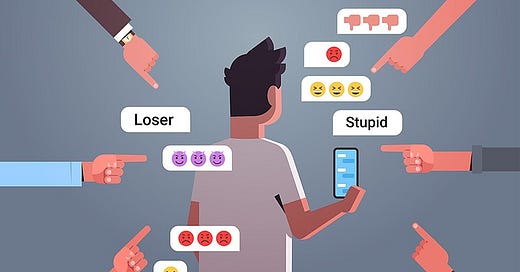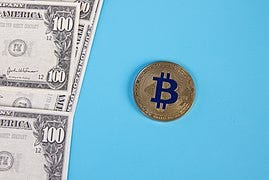The HxA Way is a set of norms and values that the organization Heterodox Academy has adopted in order to “best promote open inquiry, viewpoint diversity, and constructive disagreement.” Contributers to “Heterodoxy in the Stacks” are asked to use these values to guide their writing. If widely adopted, they could vastly improve the quality of both public and private communication. Online communication, in particular, has become increasingly difficult to navigate due to the ease of virtual disrespect and the presence of trolls.
In order to address the larger crisis in constructive dialogue, numerous organizations and publications have sprung up over the past few years. Counterweight is one example; it serves as a support group for employees overwhelmed by “illiberal tendencies” in their workplaces. Their mission and scope is clear. (Update: Counterweight has recently closed its operations). Many other types of entities that initially sprouted out of a similar need to address the authoritarian overreach around some DEI initiatives also profess to embrace open inquiry more generally. This can be an uneasy mix, as, to use a car analogy, people dealing with an “emergency flat tire” don’t necessarily desire to look under the hood for further problems, especially if they haven’t noticed any warning lights, and defining the parameters of what one considers “open inquiry” is challenging. My sense is that as more organizations and media entities enter this space, they will help define each other’s scope by contrast. For example, the arrival of the harder-hitting Public better defines the scope of The Free Press.
Due to the general deterioration in civic dialogue, people are often searching for in-person spaces where they can safely discuss pressing issues free of condescension, judgment, bullying, ridicule, shaming, or other intimidation tactics. Groups are made of individuals, so it is always difficult to generalize, but if asked that question I tend to recommend three groups. One is cryptocurrency groups for dialogue not only around cryptocurrency but also self-sufficiency, the financial system, and other developments in technology such as Web 3.0. Some type of crypto group likely exists in every city; there is also a national organization that holds weekly events in various cities called CryptoMondays. The second thing I will recommend is to look up the local Libertarian Party to see if they hold speaker events or other types of events such as movie nights. They tend to welcome both Libertarians and non-Libertarians alike and are firm believers in free speech. Third, I will recommend the local chapter of Children’s Health Defense for meetings in which to discuss health and environmental issues as well as issues pertaining to censorship and surveillance. Tapping into any one of those networks will likely lead to the discovery of other local groups in which open discussion is welcomed surrounding issues of self-sufficiency, medical freedom, or current and past events.
Image: Bitcoin Token along Cash.jpg/ Wikimedia Commons
Particularly in this era of information silos, any community can fall prey to “groupthink,” and all groups will tend to be organized around an overall outlook. If I am forced into a silo, however, I vastly prefer one in which communication is respectful and I feel comfortable expressing my thoughts. In my travels through various groups I have met Andy Libson of the What’s Left? podcast; the episode of his podcast entitled “So, Are You Voting for RFK Jr.?” is an excellent example of constructive dialogue across lines of difference.
A friend of mine said recently, “There are only two groups of people right now. Those who are for free speech and open debate, and those who are not.” Everyone’s threshold of what they consider “outlandish” is different, but if you open yourself up to groups where open inquiry is a bedrock principle, you must be prepared to occasionally be gobsmacked by someone else’s belief. I’ve learned to treat belief systems in the way I do religion— as long as someone is not determined to convert me or shut my speech down and we can discuss a range of subjects respectfully, then it doesn’t really matter.
By opening myself up in this way I have met a vast array of people and learned quite a bit about how our world is currently functioning. Some of the people I have met have abandoned what they now consider cult like situations, others have been betrayed by the system in heartbreaking ways, and still others are involved in relationships with partners who now hold vastly differing world views. One thing many of them hold in common is that they have gotten off social media and given up on trying to convince anyone of anything. I find it easy to empathize with this approach, as practicing the principles of constructive dialogue with people who refuse to return the favor becomes emotionally exhausting.
Is Everyone in a Cult?
Lately I have had the opportunity to attend some introductory lectures on Buddhism, sparking an interest in comparative religion that led me to the book The World's Religions by Huston Smith. At base, all religions appear to teach “kindness to others,” but I was fascinated not only by the major differences between Abrahamic religions and Dharmic religi…
To promote viewpoint diversity, Heterodoxy in the Stacks invites constructive dissent and disagreement in the form of guest posts. While articles published on Heterodoxy in the Stacks are not peer- or editorially-reviewed, all posts and comments must model the HxA Way. Content is attributed to the individual contributor(s).
To submit an article for Heterodoxy in the Stacks, submit the Heterodoxy in the Stacks Guest Submission form in the format of a Microsoft Word document, PDF, or a Google Doc. Unless otherwise requested, posts will include the author’s name and the commenting feature will be on. We understand that sharing diverse viewpoints can be risky, both professionally and personally, so anonymous and pseudonymous posts are allowed.
Thank you for joining the conversation!
Top Image: Cyber-bullying.jpg/ Wikimedia commons






Susan,
I had somehow not associated the movement known as DYOR (Do Your Own Research) with cryptocurrency groups that you've mentioned here, but that's because I don't know that much about cryptocurrrency (other than on the most general level), and also, probably because of my own skepticism about it. I should learn more.
I do have two questions here:
1. Are you finding the venues for Open Dialogue that you've mentioned--cryptocurrency meetups and Libertarian meetings--really able to open the Overton Window about what viewpoints can be discussed? or do they have their own ideology (anti-establishmentarianism?) that keeps what's acceptable to them within certain limits? If someone came to one of their meetings with a thoroughly "mainstream narrative' POV, respect for expert consensus or just experts in government, public health, universities, foundations, think tanks, would that person be respected and listened to?
2. I'm wondering if these alternative venues and alternative sources of information that you've mentioned, that promote Open Dialogue, can create their own "Certainty Trap" (Ilana Redstone's apt concept)? The certainty being that only non-mainstream sources of information or expertise should be trusted?
I'm grappling with these questions because I know there are major trust problems with the "mainstream narratives" and traditional sources of information and expertise. I totally believe in open dialogue (and inquiry) and viewpoint diversity (core HxA values) but am not sure I can arrive at a place where viewpoint diversity encompasses dismissal of experts and "mainstream narratives" altogether. Something I'm pondering much of late . . . . .
I like to read/hear both sides of an argument. It's always interesting to see the change over time on one side or both as more information comes to light. I particularly recommend listening to source speakers, reading source documents. It is very rare to have a speaker fairly summed up by someone on the opposite side ideologically/politically. Or an article/piece of research summarized by a group or person on the side of wanting it "not to be true". Also, important with science to find people who are actually specialists in the field to interpret information instead of experts outside the discipline. By reading/listening widely you tend to become more aware of the different experts/sources which is great.